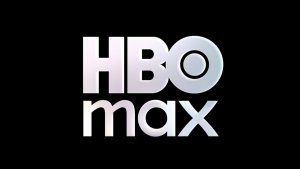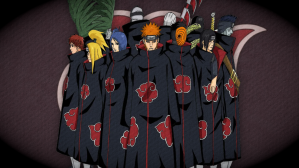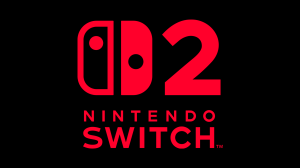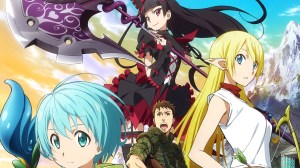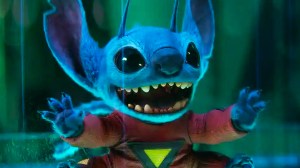As the year winds to a close, it’s human nature to look back on 2008 and try to take stock in where our entertainment dollars went. The comics market of 2008 was again driven by the major publishers’ big “event” books, DC’s Final Crisisand Marvel’s Secret Invasion, but there were some fairly notable books outside of those stories, too.Booster Gold (DC Comics) has been a remarkable book since its inception. The first twelve issues, written by comics superstar Geoff Johns with movie executive Jeff Katz and drawn by Dan Jurgens (who created Booster Gold) and Norm Rapmund, were among the best first year of any mainstream superhero comic in recent memory. A two-issue fill-in arc by the normal art team and written by guest-writer Chuck Dixon was equally entertaining and, while the last couple of months have seen a major drop-off in quality when fill-in team Rick Remender, Patrick Olliffe and Jerry Ordway turned in a lackluster two-issue story, the year looks to end in style as Jurgens reclaims the roles of both writer and artist and wraps up the plot threads left dangling after Dixon’s guest story. Fun, smart and full of comic book in-jokes, Booster Gold is the perfect superhero story for longtime comics fans.So much has been written about writer Ed Brubaker’s run on Captain America (Marvel Comics) that to list it as “one of the best of the year” almost seems redundant. With penciler Steve Epting and a number of other artistic collaborators this year, Brubaker turned one of the stalest, squarest characters in comics into a must-read…by killing him…just over a year ago, and the book has done nothing but pick up steam since then. The adventures of Bucky Barnes, the original Captain America’s “kid sidekick” who had been presumed dead for almost sixty years, have filled the pages of the Captain America monthly since Steve Rogers’ assassination, and he’s just now getting out from under the weight of Rogers’ mantle-and the story borne out of Steve’s assassination.Echo (Antarctic Press), Terry Moore’s follow-up to his beloved Strangers in Paradise series, started slow and had many fans and critics wondering exactly what Moore was driving at. But after five issues, the book exploded and the last few months have been as focused, driven and clever as any writing in mainstream comics. Its protagonist Julie is a smart, capable woman whose relationship problems and questionable emotional stability give her depth and texture, making her more real and believable than the square-jawed jocks who populate most of the books on the shelf to her left and right.If there’s one book that deserves its audience to triple next year, it’s Todd Dezago and Craig Rousseau’s The Perhapanauts (Image Comics). A smart, funny book about a group of supernatural characters (a bigfoot, a ghost, a chupacabra, a mothman and more) who investigate paranormal phenomena for the government is part Hellboy, part NBC’s Chuck. Each member of its sprawling supporting cast has their own subplot, yet none of them overpower the narrative that’s been chugging right along since these characters were first featured in a pair of Dark Horse Comics miniseries half a decade ago.The Walking Dead (Image Comics) is a comic that’s so good, it’s totally redefined expectations. Robert Kirkman’s success following the success of The Walking Dead has been unprecedented, and now he’s an Image Comics partner, and the only non-founder working on the upcoming Image United book. The “No One is Safe” story that started out this year was one that shook the foundations of the comic, leaving the supporting cast in tatters, the characters’ emotional well-being in shambles and any reasonable expectations on the part of the fans that they knew what was coming in the dust. Kirkman and artist Charlie Adlard have crafted a dark, stark, believable world in which horrible things happen and “that baby was better off dead” is a reasonable thing for the author to tell an irate fan.Where The Walking Dead took some chances in 2008 and they turned out brilliantly, the Spider-Man books (now just Amazing Spider-Man from Marvel Comics) gave us “One More Day” and a Faustian bargain that saw the titular hero give up his relationship with Mary Jane Watson-Parker, his wife since 1985, in order to save the life of his 90-odd-year-old aunt who was on her death bed for something like the four-hundredth time. Since then the book has improved dramatically, with a rotating creative team of superstars who have been given essentially a blank slate since Spidey has forgotten nearly everything that’s happened to him since The Wedding That Wasn’t, but the quality has merely been passable-not nearly good enough to justify the hackneyed way the changes were brought about.Warren Ellis’ schtick has finally started to wear thin, as his new superhero book Black Summer(Avatar Press) feels like just another unnecessary variation on his own work, or that of his friend Garth Ennis, who has accomplished essentially the same thing but better with Dynamite Entertainment’s The Boys, featuring art by Darick Robertson, who worked with Ellis years ago onTransmetropolitan.Neither the return of Mark Waid to the character nor the return of Tom Peyer to comics could salvage the mess made of The Flash (DC Comics) since the end of Infinite Crisis, when Wally West disappeared and later came back with twin teenagers who weren’t the same age (figure that one out without my help, please, it hurts too much to talk about). Every creative change all year long was greeted with fanfare and high expectations, which makes it difficult now to become excited by the announcement that next year will be Geoff Johns and Ethan Van Sciver’s turn to try and fix the broken franchise with The Flash: Rebirth, featuring the return to prominence of long-dead former Flash Barry Allen, widely regarded as one of the dullest characters in comics.And for Johns-one of the best and most consistent writers in comics, he’s just been playing below his own level on Justice Society of America (DC Comics) this year. The seemingly-never-ending Thy Kingdom Come story seems to finally be winding down this month, but if anyone out there can explain what’s happened, why it’s important or who these dozens of random “legacy” heroes are, they deserve a medal because they certainly have more patience than the rest of us. With Johns appearing poised to take over The Legion of Super-Heroes next year, we can expect more “enormous cast, small plot” type of stories from him in the near future.Every year, of course, on top of the best and the worst, there are a few books that just plain surprise you. One such book-that has been much better than it has any right to be-is Deadpool (Marvel Comics) by Daniel Way and Paco Medina. Funny, fun, fast-paced, acerbic and challenging to Marvel’s stoic status quo, this book features art that actually looks like the characters might be moving (a true rarity at Marvel these days) and dialogue that might actually be spoken by someone, somewhere, at sometime. Possibly the best new series of the year from either of the Big Two publishers, Deadpool is where good comics are at right now. The other side of that coin, sadly, is Manhunter (DC Comics), which after 25 fantastic issues was canceled and has never truly recovered. Issues 26-30, published over a year ago, were passable but nothing to write home about and the first story arc that came back after that second cancellation, it returned in June with issue #31. The story took forever to tell, though, and wasn’t all that engaging. Six issues later, by the time it’s done and the characters are actually doing something again, DC has announced a third (and probably final) cancellation for the book-let’s hope if writer Marc Andreyko can find a way to bring it back again, he manages to recapture some of the lightning in a bottle that made the first two years so brilliant, or it will be for naught that the book was saved a third time.
The Best and Worst Comics of 2008
As the year winds to a close, it’s human nature to look back on 2008 and try to take stock in […]


